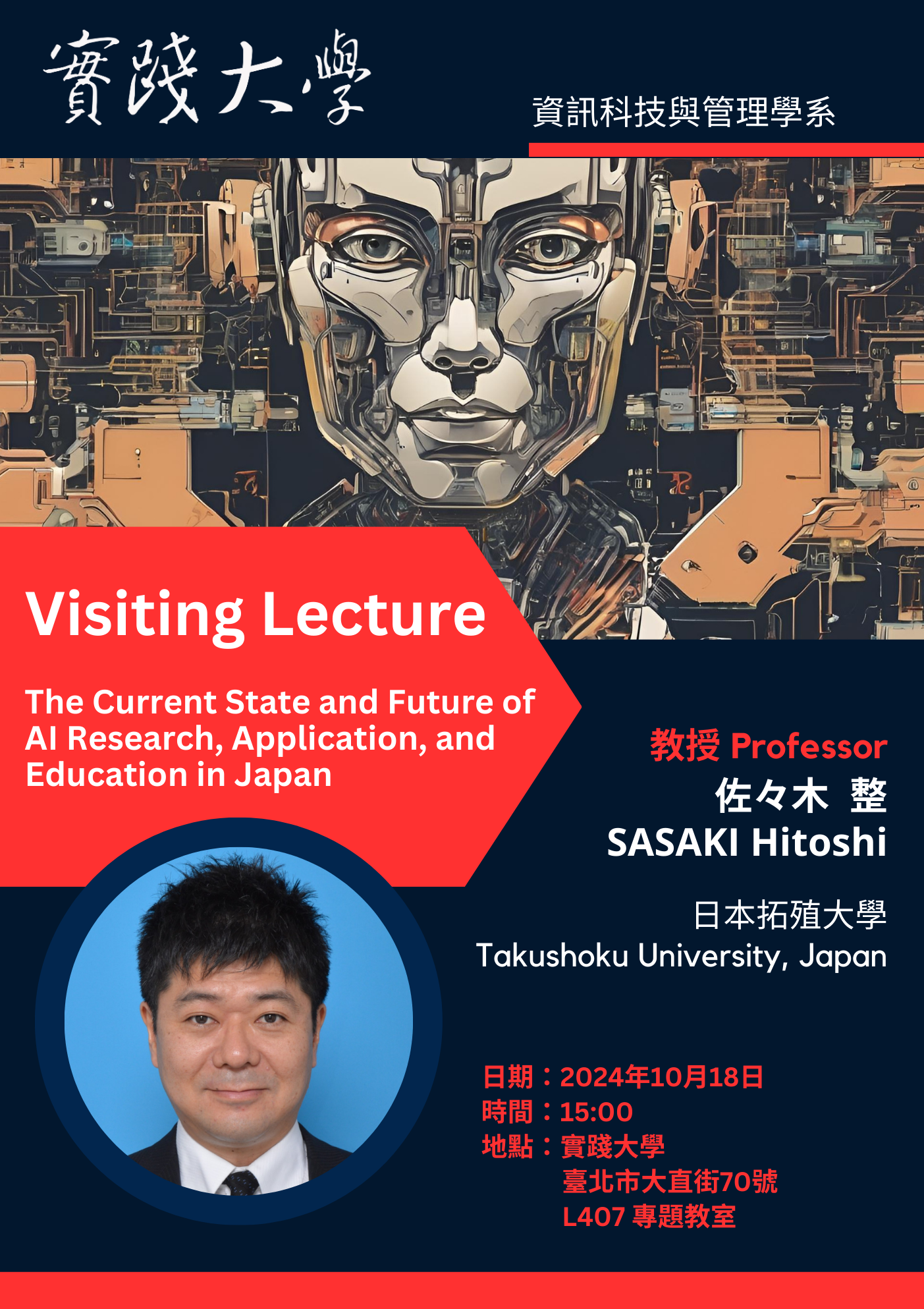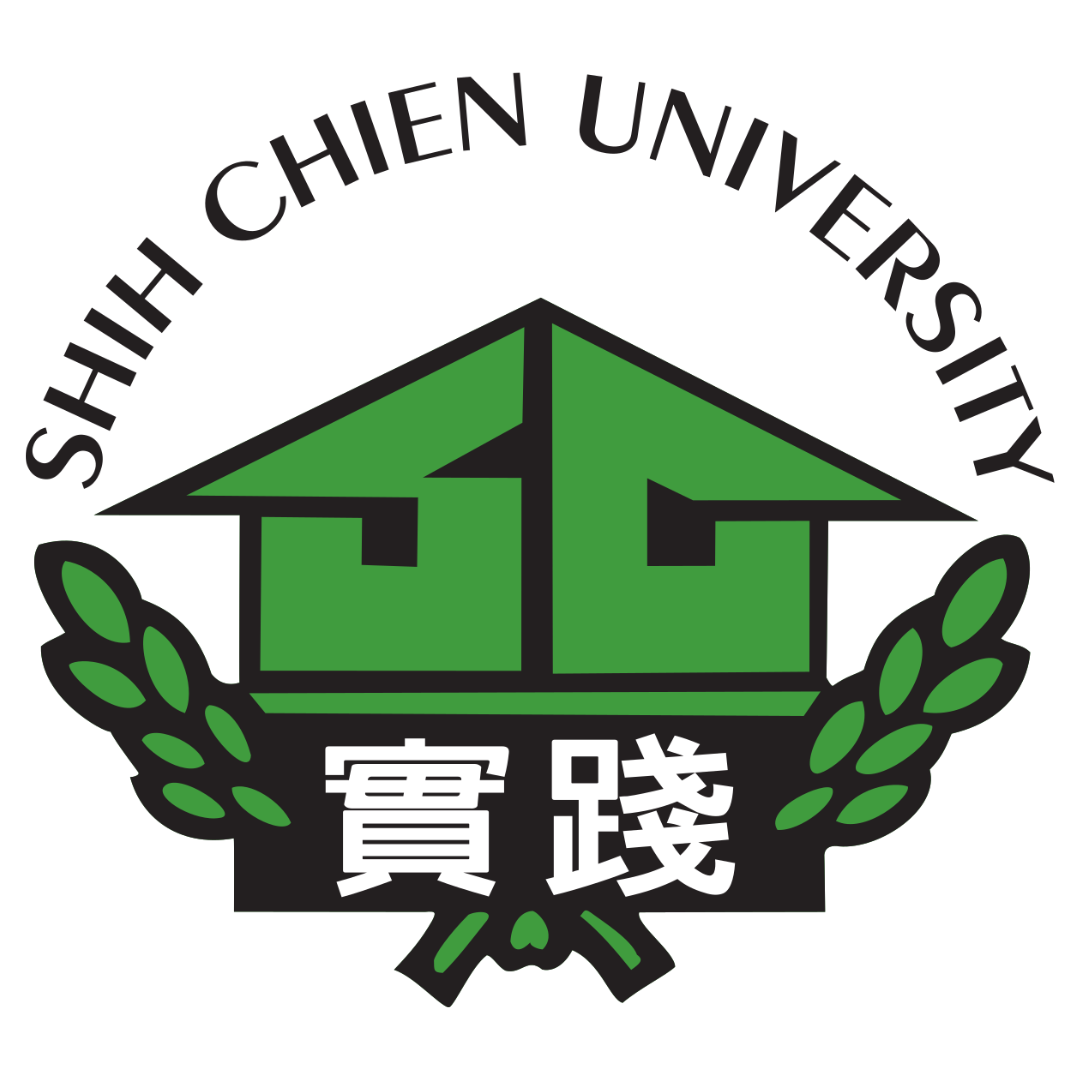The Current State and Future of AI Research in Japan - A Lecture by Professor Hitoshi Sasaki
The Current State and Future of AI Research in Japan - A Lecture by Professor Hitoshi Sasaki
Title: The Current State and Future of AI Research in Japan - A Lecture by Professor Hitoshi SasakiOn October 18, 2024, the Department of Information Technology and Management at Shih Chien University invited Professor Hitoshi Sasaki from Takushoku University, Japan, to deliver a special lecture titled "The Current State and Future of AI Research, Application, and Education in Japan." The lecture was held at 3:00 PM in Room L407 at Shih Chien University, attended by 25 faculty members and students. Professor Sasaki began by introducing Takushoku University, which was established in 1900 and has several faculties, including Engineering, Commerce, Political Science and Economics, and International Studies. He shared his background, highlighting his expertise in Educational Technology and his recent work in programming education using block programming, providing context for the audience to understand his contributions. The core theme of the lecture revolved around the development of AI in Japan, from early advancements in Natural Language Processing, Speech Recognition, and Image Processing in the 1960s to the major "Fifth Generation Computer Project" led by Japan's Ministry of International Trade and Industry in the 1980s. This period was significant for Japan as it experienced its second AI boom, marked by substantial investments in education and corporate research. However, Professor Sasaki explained how limitations in practical applications led to the end of this boom. Professor Sasaki also discussed the AI resurgence in the 2010s, largely driven by advancements in Deep Learning technology. The Japanese government followed up with strategic initiatives such as the "AI Technology Strategy" in 2017 and the "AI Strategy 2022." Despite these efforts, he acknowledged that Japan's progress in AI research and development still lags behind other countries, particularly China and the United States. He emphasized the stagnation in the number of top AI papers produced by Japan compared to the rapid growth in countries like China. He attributed Japan's slow progress in AI to two major factors: a shortage of human resources and a lack of data. While the number of bachelor's degree holders in Japan is increasing, the number of doctoral graduates is declining, which impacts the availability of skilled researchers. Additionally, Japan's relatively small linguistic population limits the amount of data available for training AI models compared to languages like English or Chinese. Restrictions on data sharing among companies further exacerbate these challenges. The lecture also addressed the decline of Japan's semiconductor industry, which previously held over 50% of the global market share in the 1980s but has since fallen to around 10%. This decline was partly due to trade agreements, such as the U.S.-Japan Semiconductor Agreement, which imposed limitations on Japan's industry. However, Professor Sasaki also highlighted Japan's strengths in semiconductor manufacturing equipment and materials, noting the importance of international collaborations with companies like Taiwan's TSMC to regain competitiveness. In the latter part of the lecture, Professor Sasaki introduced a case study of Sakana AI, a Japanese AI startup that achieved unicorn status within a year by adopting an innovative approach. Unlike traditional AI models that rely on vast amounts of training data and powerful hardware, Sakana AI focuses on linking multiple smaller AI systems to achieve high performance, making it a unique player in the AI landscape. The lecture concluded with a hands-on demonstration of using the Google Gemini API for generative AI applications. Professor Sasaki encouraged students to explore practical AI applications and emphasized the importance of adopting innovative AI technologies in education and industry. This inspiring lecture provided faculty and students with a valuable opportunity to understand the challenges and opportunities Japan faces in the field of AI. It also highlighted the importance of collaboration, innovation, and perseverance in advancing AI research and applications. |
 |
 |

